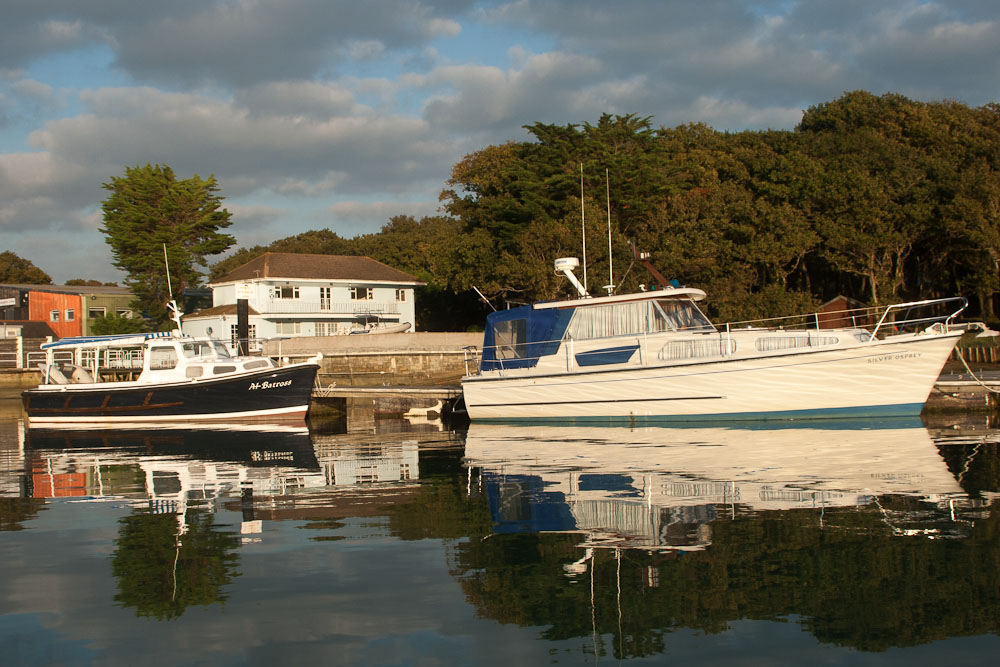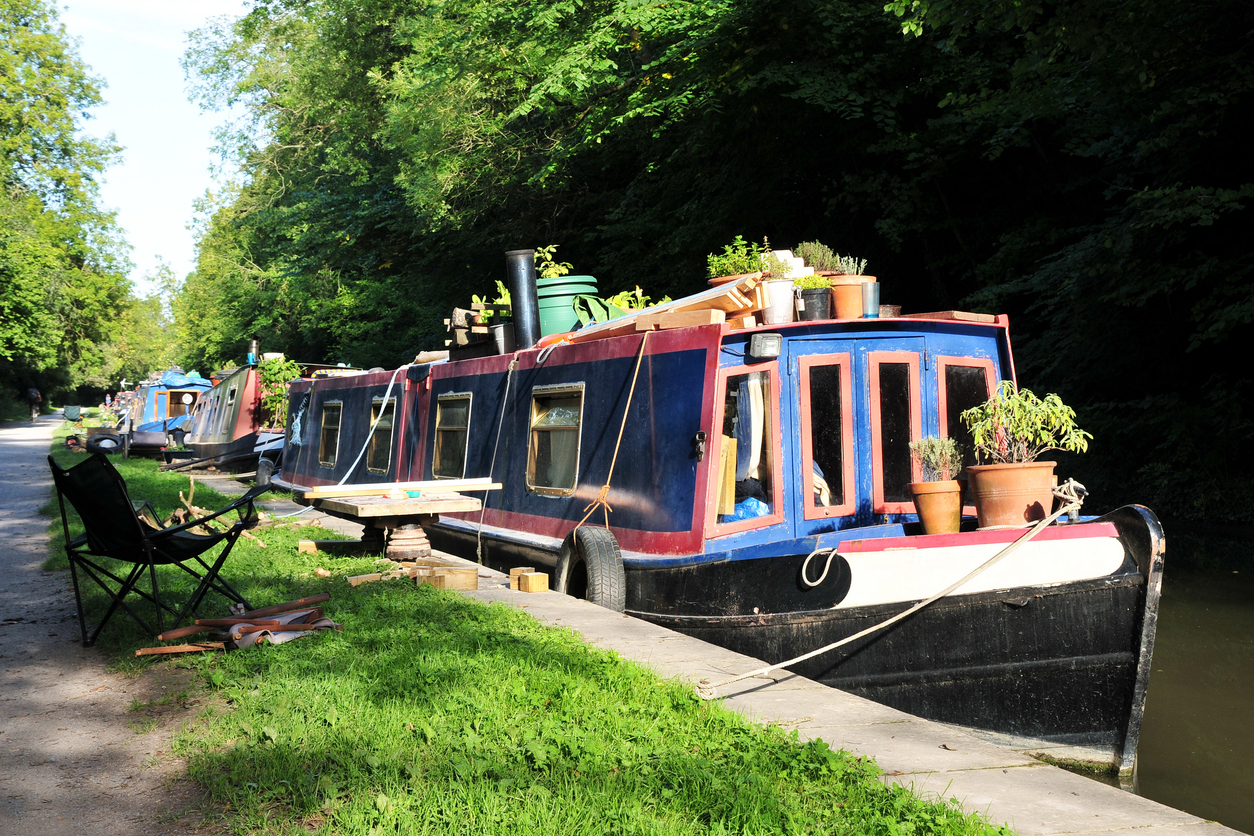Buying a new boat to put on the 2,000 mile network of navigable waterways in Britain is a major decision and the industry has a slightly chequered history as several boatbuilders have gone bust leaving clients to recover their part-built vessels from the receivers.
Knowing what precautions you must take and how to deal with the buying process is crucial, as Peter Underwood explains.
This is the third in a series of nearly a dozen videos looking at getting afloat on Britain’s wonderful canals and waterways which have been produced for Norbury Wharf Ltd, based on the Shropshire Union Canal in Staffordshire.
*Video Transcript*
"So you've decided to buy a new boat. The do's and don'ts of buying a new boat and how to avoid becoming the victim of a boat builder and trouble is the first thing we’ll deal with. The advice from CRT and the trade bodies are very cautious and we'll add some of our own.
If you're planning to become the proud owner of a new boat, well, congratulations, you've just become a pretty rare beast. Around 1% of British households own a boat on our canals, about 37,000 of them, but there are fewer new boats registered each year. In 2008 it peaked at around 2,000 as to what was then British Waterways, and then as the recession bit, it dropped dramatically. It's now around half that and those numbers also illustrate why you need to be especially careful of who you buy your new boat from.
The number of boat builders going out of business has long been a concern to the industry and if the builder goes bust while your boat is in his yard, it will be exceptionally difficult to get at it, especially if the boat is assumed to be part of the disposable assets of the company rather than your possession. Now that makes it essential that you have a British Marine federation boat building contract signed by both you and the boat builder, which ensures that you own the bits you've paid for, so in theory, you can never lose your boat or your money.
Now, avoid any builder who asks for a massive deposit upfront.
Payment of around a thousand pounds should secure your build slot and allow you to start designing your boat with the Builder. That should produce an agreed specification and price with the stages of production and the percentages of the price payable set out in the contract, that way you know when and how much you will have to find.
The advantages of buying new include, being able to specify exactly what you want in your boat and having the guarantee when the work should be finished and suited exactly as you want it. I have to say, that when many cars come with five-year guarantees, I find it puzzling that builders will only guarantee their work for one year.
The disadvantages of new include, of course, having to pay 20% VAT, although you can't quite say that you lose that from the value of the boat as soon as you take delivery, and that's because second-hand values tend to be based on the total figure including VAT rather than the value without the tax.
So assuming you've made the key decisions on length, width, layout, etc, it's worth offering a word of caution if you're concerned about resale value. Any boat broker will tell you it's much more difficult to sell an unusual boat, one built around your particular idiosyncrasies. It may be boring but choosing a fairly standard layout and design will mean a better price later on.
You can find plenty of boat builders in the pages of any waterways newspaper or magazine, but they're not all the same.
Some build from the bottom up. Buying in the steel to weld together the shell, fitting the mechanical, electrical and plumbing services you need, building the interior spaces, painting the exterior and even finishing up with the signwriting.
Others buy-in shells, sometimes from other UK firms but also from around the world from the Polish shipyards to Chinese factories, and the shell does matter. Whether it's built here or abroad I've seen shells turn up for fitting at a boatyard with very poor lines, obvious welds and a general fate of being thrown together.
It's good advice to take a close look at the shells your builders either have created or bought in before a painter gets anywhere near them. Of course, the better the reputation of the shell build, the higher the price, just as the price will soar as soon as you start specifying something out of the ordinary. A basic new narrowboat will probably cost around £1,300 a foot in length fully fitted and a wide beam boat about £1,700-£1,800 per foot.
Some people have the skills necessary to do the fit-out work themselves and they'll buy what tend to be called sail-aways, fitted to a specific level that usually includes the engine, electrics and interior lining, more sophisticated packages could have a bathroom as well. At the other end, you can just buy a house with no engine, although it may include a diesel and water tank, gas locker, ladder, tiller etc.
But do your research, visit various boat builders, see what they've got to offer and more importantly, talk to their previous customers. If they're unable or unwilling to put you in touch, go somewhere else.
If you decide on the best steelwork you can afford, satisfied yourself that your builder is unlikely to go to the wall, agreed on a design that you can get built but you then can't really go away and just let the boat builder get on with it whilst drip-feeding them money. You really do need to visit your builder regularly, at the simplest level you need to be sure he's done what he/she claims to have done before you make the next stage payment. It’s equally important if you see your boat coming together you'll know what's behind that piece of veneer or beneath the step and that can be really helpful when the boat's yours.
You will get cost benefits from buying a new boat from a standard range, as the builder can create templates, place bulk orders and pass on the savings. What you won't get of course is individuality. All new boats have to comply with the recreational craft directive- make sure you get all the certification markings and manuals that are required under the law.
I would suggest it's important that you feel comfortable with the builder creating your new boat, you may well be dealing with a person who actually welds the steel and saws the wood and many of them are highly skilled.
You need to feel you can call in at any time and be welcomed, this is not so easy with overseas manufacturers of course. If your boat is being built in a Polish shipyard, even an inspection trip often offered to buyers will not give you the regular contact most would feel happy about. The best alternative is to make sure you've talked with several existing owners and get any commitments made verbally by the UK salesperson put in writing. There will be complications, misinterpretations and even mistakes, it's almost inevitable but you have to be happy that you can sort them out with the people concerned with doing the work.
Once all of that is put together, you could end up with most wonderful person in the world but don't expect it to be a pain-free process and good luck!”


